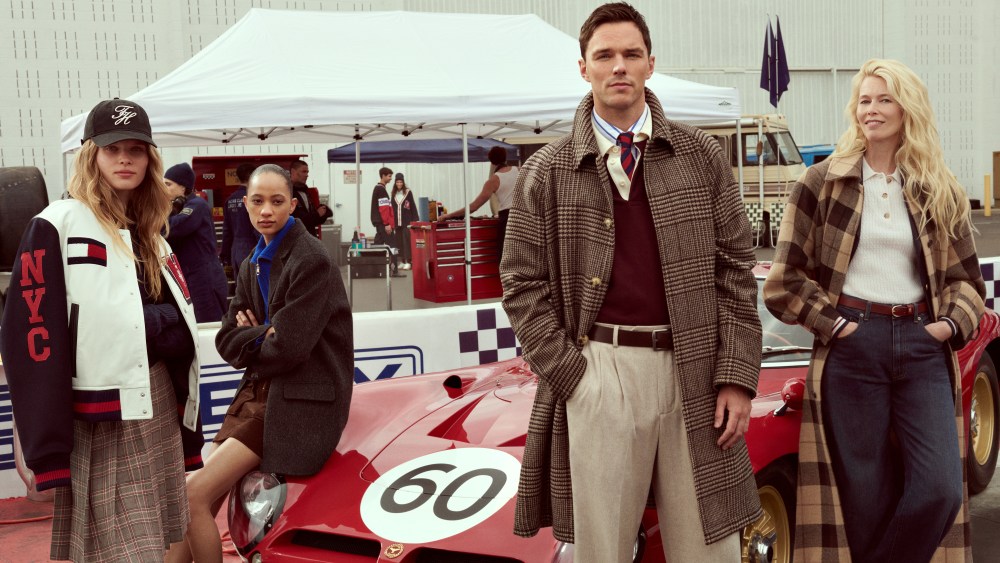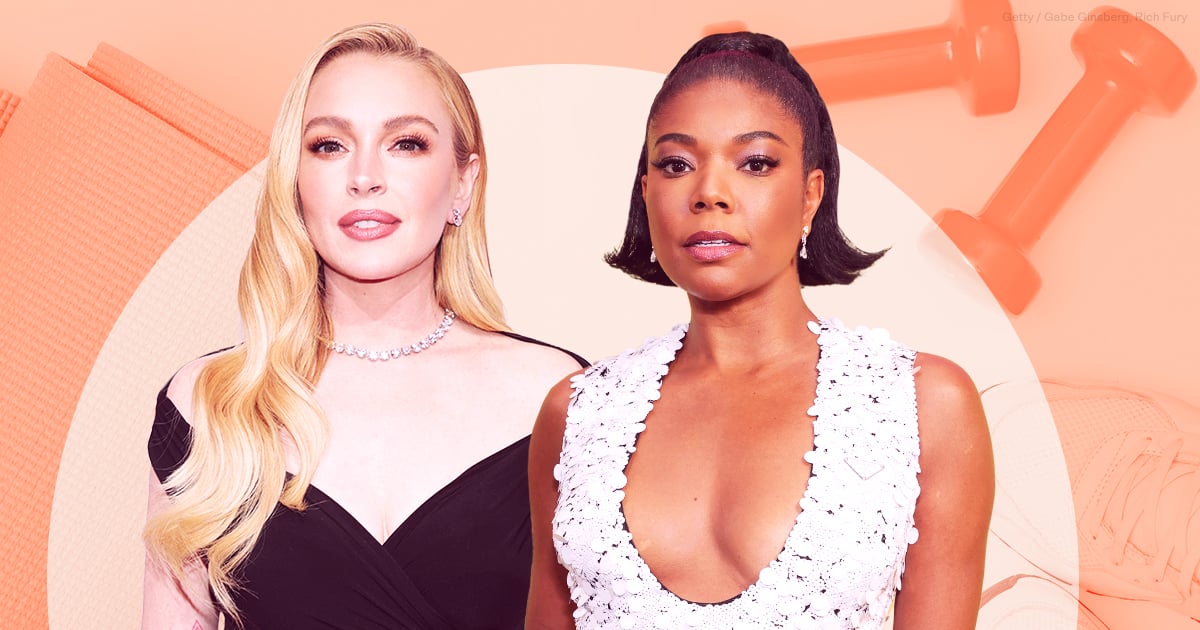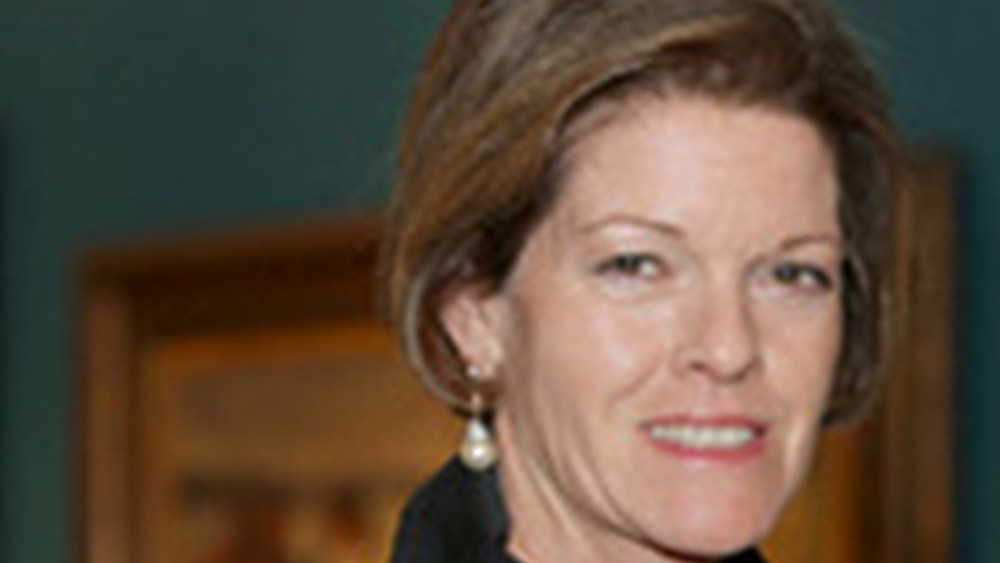Natalie MacLennan is on a mission: to grow the women’s business at Dockers.
The brand has been known primarily as a men’s label since it was created nearly 40 years ago and its khaki pants became the poster child of the Casual Friday phenomenon in the late ’80s. Although women’s has been part of the mix since 1993, it never achieved the same prominence, and today, it still only accounts for a percentage of sales that is in the low single digits.
But MacLennan, who was elevated to chief executive officer of Dockers in May, is determined to change that. On Wednesday, Dockers will go live with a blog post focused on “the woman who shops at Dockers.” The goal is to increase awareness that the brand also offers womenswear and to build strength in the category going forward.
“We’ve always been known as a menswear brand, but a fair number of women already engage with Dockers,” MacLennan said. In fact, one-third of the online customers in the U.S. are female, she said, a figure that is true in Europe as well. Although they’re mainly buying for the men in their lives, the fact that they’re already engaging with the brand opens a door, she believes.

“These women understand the quality and fit Dockers has to offer and are eager to try the product, making it an easier entry into the women’s business,” the blog post reads. “The Dockers team has been hard at work to understand who she is, what her day entails and what she needs from her clothes.”
MacLennan said there’s a “latent awareness” among women that Dockers stands for “timelessness, heritage, quality, comfort and fit,” but the aesthetic has changed over the years to make it more “relevant to today. We know many women live busy lives, and we want our products to be as ready for anything as they are: from heading to the office or meeting a friend for coffee to going out on a dinner date.”
Dockers women’s has been carried online since its introduction 30 years ago, but was recently pulled back to be “reset” and modernized, MacLennan said.
And so far, the efforts appear to be paying off. “The women’s business is up more than 60 percent year-to-date,” she said. “Although it’s coming from a small base, it’s still gaining traction.”
In the U.S., Dockers women’s products are available online, in the company’s seven retail stores, which are a mix of full-price and outlets, as well as on Amazon, Tillys and Free People. Overseas, where the Dockers brand has performed more strongly in recent years, the company has experienced a similar uptick. MacLennan said that El Corte Inglés in Spain has opened women’s shops-in-shop in its stores and the line is also performing well in Mexico, Chile and Peru.
Bestsellers include chinos, particularly the Weekend Chino which is offered in a number of fits as well as models with pleats or wider legs for the more-trendy retailers such as Tillys and Free People. “It still feels like Dockers — we’re not trying to be fast-fashion,” she stressed.
Although the business continues to be rooted in bottoms, complementary tops such as T-shirts in a variety of cuts including V-necks, crews, slim or boxy/oversize, as well as woven button-down oxfords are finding fans. And there are also a few “sizzle pieces” such as jumpsuits and dresses, she said, to add interest to the assortment.

To drive awareness, the brand has signed three new women ambassadors who will be featured in the second iteration of its Live Original campaign, which kicked off earlier this year and encourages people to embrace their originality. “It’s about everyone having their own story,” MacLennan said.
The new ambassadors are Taylor Hill, a professional model, who will front the U.S. campaign; Nicole Zignago, a Peruvian singer/songwriter who will be the ambassador for Latin America, and Elina Svitolina, a Ukrainian tennis professional whose husband, Gael Monfils, is also a Dockers ambassador. The women join other Dockers endorsers including Jordan Poole, Maud Le Car, Matthias Dandois and Johny Salido and will be featured in digital campaigns, help with product launches and make personal appearances on behalf of the company.
“I love that Dockers has this focus on authenticity and originality, and it really shows in their clothes,” said Hill. “I was so excited to work with a product I can really make my own. My personal style is so important to me, and Dockers clothes really allow me to explore that.”
MacLennan believes that Dockers’ women’s business can soon inch up into the double digits percentage of overall sales but she’s willing to take it slow and easy. “We’re going to take it season by season,” she said.
Dockers continues to be under the ownership of Levi Strauss, which had entertained closing or selling the business two years ago but ultimately made a decision to separate the division from the core Levi’s group in hopes that it would once again find its footing as a stand-alone company.
MacLennan said that last year, Dockers posted growth of 27 percent over the previous year, a figure it achieved the year before that as well. “And we’re still growing this year,” she said. Half of the overall revenue comes from the U.S. and the other half from overseas. “We’re very excited to be within the LS&Co. portfolio and think it’s a great place for us to grow.”
Plans for the brand as a whole this year including adding about 30 new stores to its fleet of 60, most of which are located outside the U.S. borders. Of that number, most will be added in Europe and Latin America but there are plans to add a full-price store in Westfield Valley Fair in Santa Clara, Calif., and an outlet at Great Mall in Milpitas, Calif., both in the San Francisco Bay area.



